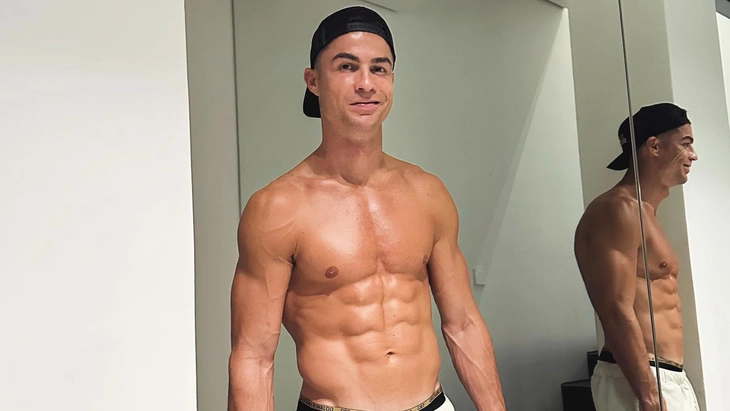
Ronaldo shows off his body at the age of 40 - Photo: INSTAGRAM
Why is Ronaldo's biological age lower than his real age?
This is the result announced by sports technology company WHOOP, after completing a physiological test with Ronaldo.
Tests measuring metrics such as heart rate, heart rate variability, sleep and recovery levels showed Ronaldo's fitness was comparable to that of a 29-year-old athlete.
Biological age reflects the actual state of the body based on physiological indicators and overall health, rather than just based on the number of years lived. It can differ from birth age, depending on lifestyle, diet, physical activity level and other factors.
According to Dr. Steve Horvath - a geneticist at UCLA (USA), the developer of the famous "epigenetic clock" measure explains:
"Biological age is an index reflecting the physiological aging level of body cells, determined through gene expression, DNA methylation levels, inflammatory and metabolic indices - completely different from real age".
Also according to Dr. Horvath, people who maintain regular physical activity will have longer telomeres (chromosome tips) - a typical sign of younger biological age.
Of course, having a biological age younger than your actual age is a very positive phenomenon. People with a low biological age can generally live longer than normal, and even enjoy a better life thanks to their organs not aging.
Choose the right lifestyle
It is a reality that a 40 year old person has a biological age of around 30, although it is not very common.
Before Ronaldo, there were also a number of sports stars who were proven to have a biological age much younger than their real age.
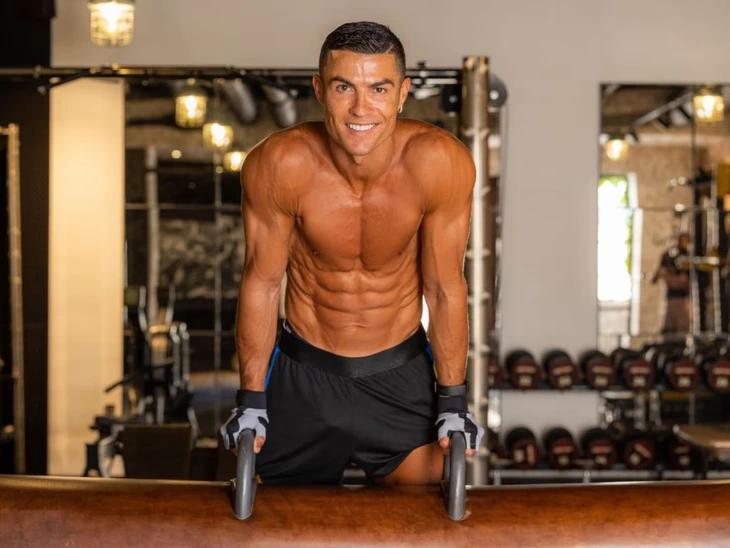
Ronaldo trains hard at the age of 40 - Photo: INSTAGRAM
A typical example is football star Tom Brady, at the age of 45 he has a biological age of only about 30. Even actress Jennifer Lopez has a biological age much younger than her real age thanks to good body care.
According to Ronaldo, the reason he has a low biological age is because he maintains a strict lifestyle, focusing on sleeping 7-8 hours a day, eating enough and reasonably, as well as walking about 17,000 steps a day (minimum level of exercise).
Meanwhile, Dr. Horvath offers specific advice for achieving a low biological age:
Scientific nutrition:
A diet rich in lean protein, green vegetables, healthy fats, and low in sugar helps reduce oxidative stress and maintain muscle mass.
Substances like resveratrol (in red grapes), curcumin (in turmeric), and omega-3s have been shown to slow markers of cellular aging.
Get enough sleep and good quality sleep:
Consistent poor sleep increases cortisol, disrupts blood sugar, and accelerates neuronal aging.
Just 1 hour of sleep deprivation per day over a long period of time can accelerate the biological aging process by 1.5 times.
Stress control - an important but overlooked factor:
Chronic stress weakens the immune system and shortens telomeres.
Meditation, yoga, deep breathing or even playing sports are ways to help reduce cortisol and improve cellular health.
Genetic and environmental factors:
Some people have superior anti-inflammatory and tissue-regenerating genes, but a healthy living environment (low pollution, safety, lots of green space) also plays a big role in keeping biological age low.
Exercise regularly:
Cardio, aerobic, resistance training, or HIIT (high intensity interval training) training are all good for maintaining low biological age.
Source: https://tuoitre.vn/ronaldo-40-tuoi-nhung-tuoi-sinh-hoc-lai-chi-29-vi-sao-2025052600201752.htm




![[Photo] The 5th Patriotic Emulation Congress of the Central Inspection Commission](https://vphoto.vietnam.vn/thumb/1200x675/vietnam/resource/IMAGE/2025/10/27/1761566862838_ndo_br_1-1858-jpg.webp)

![[Photo] Party Committees of Central Party agencies summarize the implementation of Resolution No. 18-NQ/TW and the direction of the Party Congress](https://vphoto.vietnam.vn/thumb/1200x675/vietnam/resource/IMAGE/2025/10/27/1761545645968_ndo_br_1-jpg.webp)
![[Photo] National Assembly Chairman Tran Thanh Man receives Chairman of the House of Representatives of Uzbekistan Nuriddin Ismoilov](https://vphoto.vietnam.vn/thumb/1200x675/vietnam/resource/IMAGE/2025/10/27/1761542647910_bnd-2610-jpg.webp)




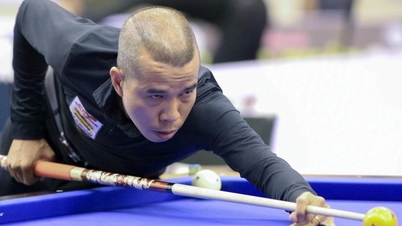


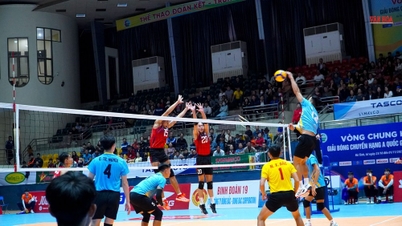








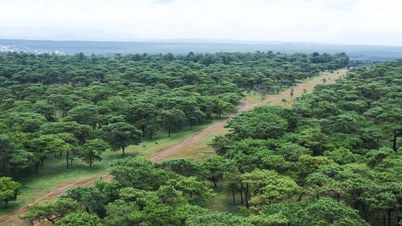












































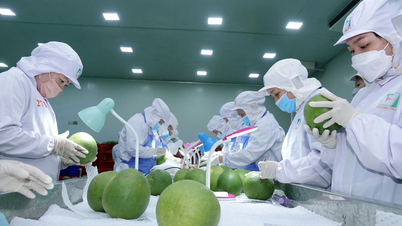

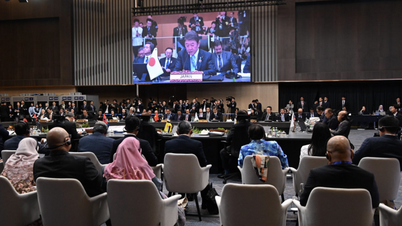







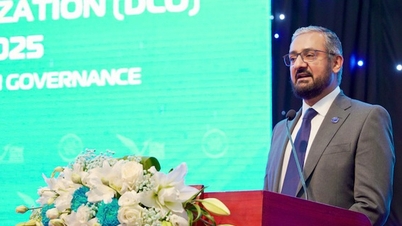




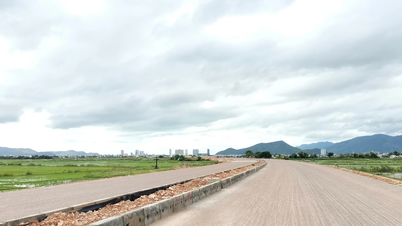





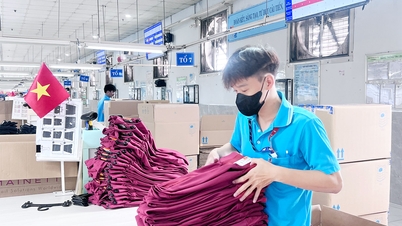












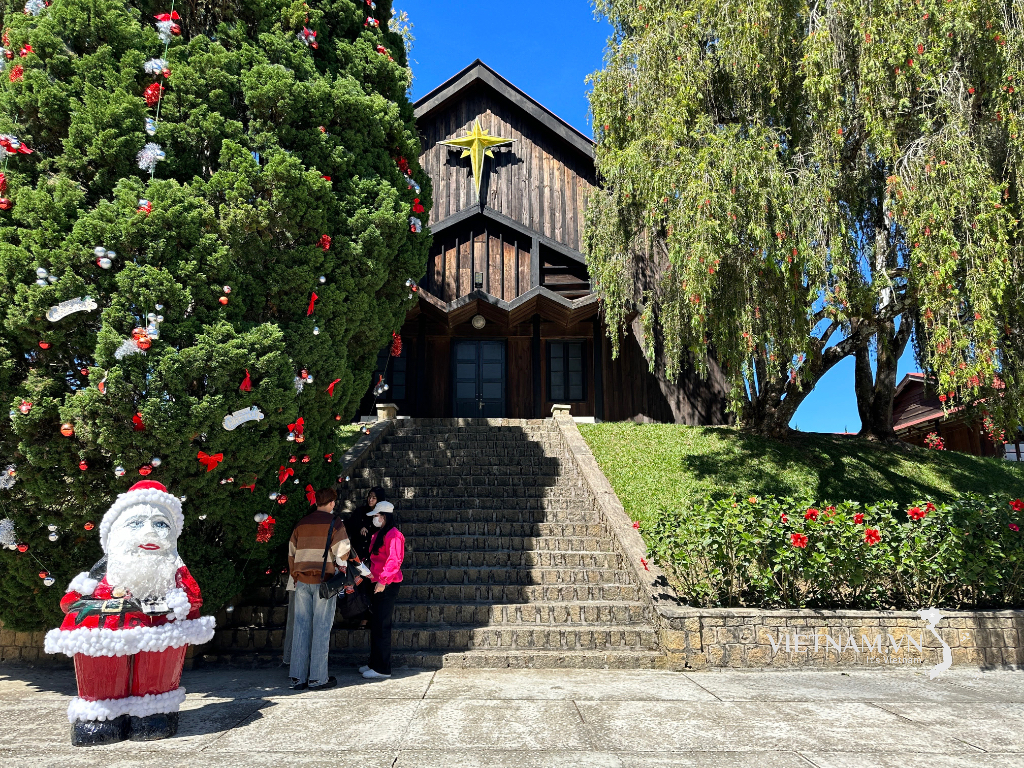



Comment (0)